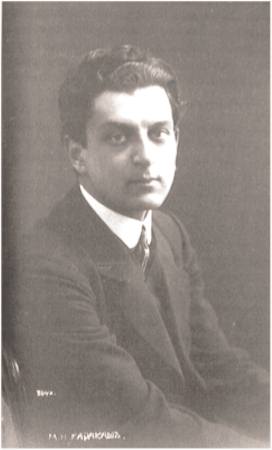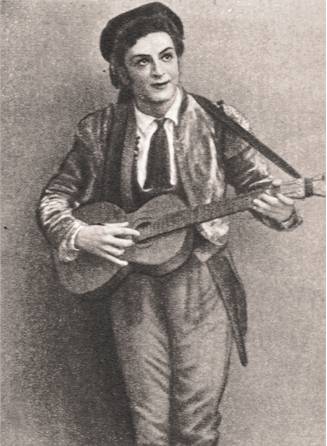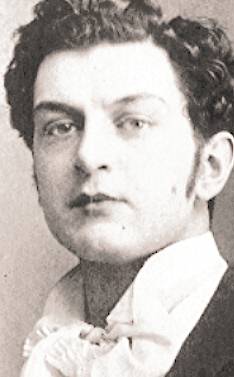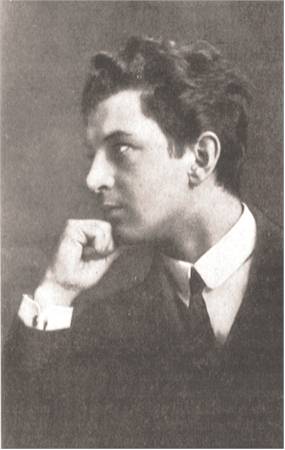Russian baritone, 1887 - 1937
Biographical notes:
He was born in Simferopol (Crimea). His father was a professor at the University of St. Petersburg. He first studied philology and history, but soon decided to study singing. His teacher
was the coloratura-soprano Natalya Iretzksaya, afterwards he completed his studies with the famous bass and coach Stanislav Gabel. Karakash made his debut at the Mariinsky Theatre in
1911 where he was engaged until 1918. He was also heard at the St. Petersburg Musical Theatre. To his most brilliant achievements belonged Eugene Onegin, Yeletzky and Grjaznoj in
Rimsky-Korsakov’s The Tsar’s Bride. His other roles: Figaro in Il Barbiere di Siviglia, Mercutio, Count of Nevers in Meyerbeer’s Les Huguenots, Sharpless, Escamillo (!), Valentin, and a number
of more lyric baritone roles in Russian operas by Dargomyzhsky, Taneyev, Rubinstein and Cui. He appeared in several opera houses in the provinces, and eventually became an admired singer in
Moscow, at the Bolshoi Theatre and at Zimin’s Opera. He toured the Balcans with his wife Elisaveta Popova (1889 - 1967). In 1921, the couple left Russia for political reasons and gave
guest appearances in Italy, Spain and France. It was Mikhail Karakash who helped the famous soprano Maria Kuznetsova
to found an ensemble called “Opéra Russe,” a troup consisting of many emigrated Russian singers. Difficult living conditions and other less-known reasons ruined his
voice, and he retired in 1926 at the age of 39! He staged a number of operas, worked as a singing coach, and eventually became Director of the Bucharest Opera. In 1931, he was
appointed professor at the Rachmaninov Conservatory, Paris. He died in Bucharest six years later.
As Figaro in Rossini’s “Il Barbiere di Siviglia”
Mikhail Karakash as Eugene Onegin Comment:
At the turn to the 20th century many fine singers came from Russia. Baritones like Maksimilian Maksakov, Ivan Gryzunov, Oscar Kamionsky, Polikarp Orlov, Nikolaj Seversky and Nikolaij
Shevelev were renowned for their art at the Bolshoi Theatre in Moscow and the Mariinski Theatre in St. Petersburg. All of them toured widely the opera houses in the provinces of Imperial Russia.
Everyone praised Karakash’s warm and persuasive beauty of his timbre, his noble manners and aristocratic stature. We can hear it on his rare recordings.
He is a very fine and well-schooled singer and, in my opinion, a model of a lyric baritone! It is not a big but resonant voice. His upper register is particularly fine, and we can admire true
legato singing. I believe that in our days, where “acting with the voice” has become so common, we should carefully “re-listen” to singers like Karakash! No other Russian baritone at his time
equalled him in the sheer beauty of voice. He sings without any effort through the entire range. Yeletzky’s aria and the two Onegin arias are great examples of a lost style. His wife Elisaveta
Popova is a good, though not an outstanding soprano. Two of the most important Russian (Soviet) successors to Mikhail Karakash’s elegant singing are His complete recordings: G&T 1913/14: - I love you beyond measure (Yeletzi in The Queen of Spades / Tchaikovsky)
- How burdensome! (Title role in Eugene Onegin / Tchaikovsky) - Don Juan’s Serenade (Nápravník)
|
|||||||||||||



